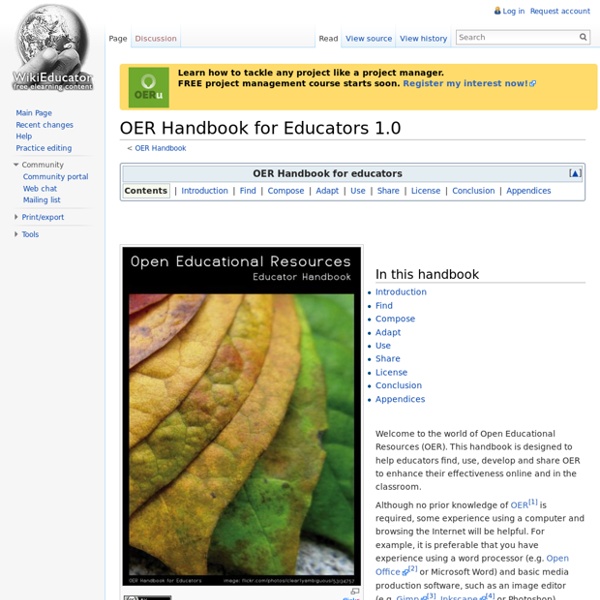OER Handbook for Educators 1.0

Wikiversity
Free Online Course Materials | Brain and Cognitive Sciences
Structurer son enseignement avec des cartes conceptuelles et des
22 novembre 2009 par Amaury Daele Dans une perspective de conception de l’enseignement axée sur l’apprentissage, nous abordons régulièrement avec mes collègues deux thématiques lors des formations-réflexions que nous proposons aux enseignant-e-s et aux assistant-e-s: la structuration des contenus au moyen de cartes conceptuelles et l’identification et la rédaction d’objectifs pédagogiques. Ces deux thématiques sont fortement liées. La structuration des contenus est souvent la première question que se posent les enseignant-e-s universitaires quand ils/elles préparent un cours. Ce n’est bien sûr pas toujours le cas mais c’est un réflexe universitaire assez typique qui existe depuis au moins 200 ans lorsque Wilhelm von Humboldt a créé la première université de Berlin et a défini une façon de considérer la pédagogie à l’université qui a encore une influence importante de nos jours: L’université idéale, selon lui, se caractérise par l’unité de l’enseignement et de la recherche. Like this:
OER Commons
site mieux-apprendre de Bruno Hourst
Open Culture
Learn English - Speak English - English Grammar, writing, vocabulary, practical English usage and grammar exercises
HippoCampus - Homework and Study Help - Free help with your algebra, biology, environmental science, American government, US history, physics and religion homework
Related:
Related:



